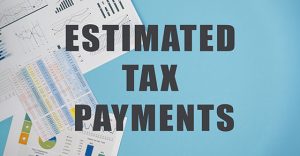
OBBBA Tax Changes: What Your Business Needs to Know
President Trump’s signature on July 4th delivered comprehensive tax reforms that will reshape the business tax landscape. The One Big Beautiful Bill Act (OBBBA) preserves numerous expiring business tax benefits while introducing new cuts aimed at promoting economic growth. For small to mid-market businesses, these changes present significant planning opportunities worth exploring.
Business Tax Benefits
The biggest victories for business owners come through enhanced deductions and permanent extensions of valuable provisions. Pass-through entities, such as partnerships, LLCs, and S corporations, can now claim the 20% qualified business income (QBI) deduction indefinitely. This permanent extension eliminates the uncertainty that was hampering long-term business planning and provides predictable tax savings for sole proprietors and pass-through business owners.
Enhanced Capital Investment Incentives
Businesses can now write off 100% of qualified new and used assets permanently for property acquired after January 19, 2025. Additionally, a brand-new 100% deduction applies to “qualified production property” placed into service from July 4, 2025, through 2030. Section 179 expensing limits increased to $2.5 million, accompanied by a $4 million phaseout threshold, both with built-in inflation adjustments, creating substantial opportunities for equipment-intensive businesses to accelerate depreciation benefits.
Research and Development Relief
Research and development received substantial relief with the permanent restoration of immediate write-offs for domestic R&D expenses, applying retroactively to 2022 for qualifying small businesses. This eliminates the unpopular requirement to spread these costs over five years and may generate refund opportunities for eligible taxpayers who have been amortizing these expenses.
Business Interest and Credit Changes
Business interest deductions expanded by removing depreciation, amortization, and depletion from adjusted taxable income calculations, potentially allowing higher deductions for leveraged businesses. However, the news isn’t universally positive – clean energy tax incentives face elimination, including credits for commercial clean vehicles, alternative fuel refueling property, and energy-efficient commercial buildings. Businesses should evaluate claiming these credits before they expire.
Multiple credits received permanent status, including enhanced Qualified Opportunity Zones, New Markets Tax Credits, and expanded employer-provided childcare credits reaching $500,000 ($600,000 for small businesses). The Employee Retention Tax Credit landscape also changed, with the IRS prohibited from issuing refunds for certain claims filed after January 31, 2024.
Strategic Planning Actions for 2025 and Beyond
With OBBBA now in effect, businesses should prioritize several key action items for the remainder of 2025 and develop strategies for 2026 and beyond. Business owners should evaluate major equipment purchases and consider accelerating qualified investments to maximize permanent depreciation benefits. The retroactive R&D expense deduction may require amended returns for 2022-2024 to claim immediate deductions.
For clients with clean energy investments, make sure to assess remaining credit opportunities before they are eliminated. The elimination of clean energy credits means comprehensive tax planning is more critical than ever.OBBBA provides significant opportunities for small to mid-market businesses, but maximizing these benefits requires strategic planning and careful timing. Consider scheduling a comprehensive tax planning review to ensure your business captures all available advantages while positioning for future changes. Contact us today to get started.
Related Blogs
Building on the foundational strategies from part one of our tax planning strategies series, let’s explore five additional tax planning strategies that can impact your bottom line. These strategies encompass a range of approaches, from real estate optimization to startup incentives and entity selection. Cost Segregation Study: Accelerating Real Estate Deductions If you own commercial …
Read more “From Real Estate to Startups: 5 Tax Strategies Your Business Needs to Know”
Thoughtful tax planning can be the difference between keeping thousands in your pocket or sending them to the IRS. While many business owners focus on growing revenue, the most successful ones understand that strategic tax planning is equally important for building wealth. Here are four powerful strategies that can significantly reduce your tax burden. Cash …
Read more “4 Tax Strategies That Could Save Your Business Thousands”








